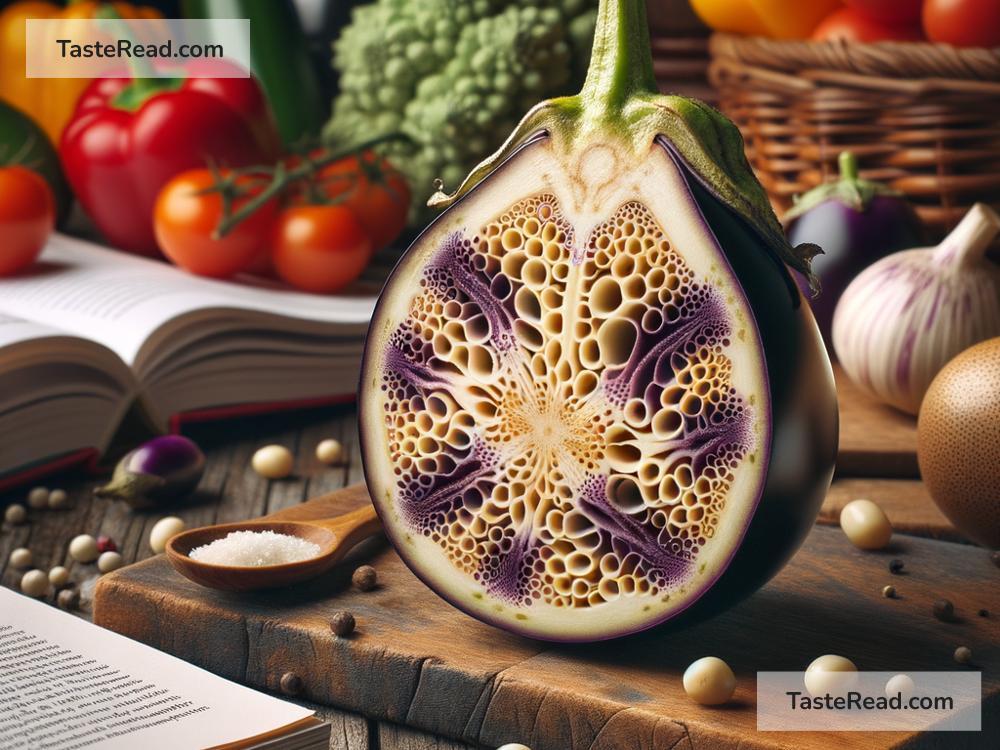The Science Behind the Bitterness of Eggplants: A Simple Explanation
Eggplants are a fascinating vegetable that has earned a place in cuisines around the world. Whether it’s in moussaka, ratatouille, babaganoush, or fried on its own, eggplants are versatile and delicious when prepared correctly. However, anyone who has cooked with eggplants knows they can sometimes taste bitter. This bitterness often surprises people, especially if they’re unfamiliar with how to handle eggplants in the kitchen. So, what causes this bitterness? And why are some eggplants bitter while others are not? Let’s take a journey into the science behind eggplants to uncover the answers.
The Culprit: Compounds Called Glycoalkaloids
The bitterness in eggplants comes from naturally occurring compounds in the plant called glycoalkaloids. These are a type of chemical defense produced by eggplants to protect themselves from predators like insects and animals. Plants can’t run away from danger, so instead, many species produce bitter or toxic compounds that make them less appealing to eat.
The specific glycoalkaloid responsible for the bitterness in eggplants is called solanine. Solanine acts as a deterrent for herbivores, ensuring the plant’s survival and reproduction. While consuming very high levels of solanine can be harmful to humans, the amount found in eggplants is far below the level that would be dangerous. However, it can make the vegetable taste bitter and unappetizing in certain cases.
Why Are Some Eggplants More Bitter Than Others?
You’ve probably noticed that not all eggplants taste bitter. Some are mild and creamy, while others have a noticeable sharp taste. Several factors influence the bitterness of an eggplant, including its variety, age, and growing conditions.
1. Variety Matters
The type of eggplant you buy has a big impact on how bitter it tastes. Traditional eggplant varieties, which often have a dark purple, glossy skin, are more likely to have a slight bitterness. On the other hand, modern hybrid varieties have been bred to reduce bitterness. These hybrids contain lower levels of solanine, making them milder and more palatable.
For example, smaller eggplants like Japanese, Chinese, or Indian varieties tend to be naturally less bitter than their larger counterparts. These varieties are popular in certain dishes because they offer a tender texture and mild flavor.
2. Size and Age
An eggplant’s age and size also play a role. Larger eggplants that have had more time to mature usually contain higher concentrations of glycoalkaloids. This is because bitter compounds tend to accumulate as the eggplant grows older. If an eggplant looks big and has started to wrinkle or lose its shine, it’s probably overripe and may taste more bitter.
Smaller, younger eggplants generally have less bitterness and can often be used directly in cooking without much preparation. When shopping for eggplants, look for ones that are firm, smooth, and shiny to ensure they’re fresh and not overly mature.
3. Environmental Factors
The way an eggplant is grown also influences its taste. Stressful growing conditions, such as hot temperatures, lack of water, or poor soil quality, can cause the plant to produce more solanine. Essentially, when an eggplant is grown under challenging conditions, it “senses” danger and ramps up its defenses by increasing the production of bitter compounds. If you grow your own eggplants, providing consistent care can help produce sweeter and less bitter vegetables.
How to Reduce Bitterness in Eggplants
If you end up with a bitter eggplant, don’t worry! There are simple ways to manage the bitterness and make it delicious.
1. Salting
The most common way to reduce bitterness is by salting the eggplant. Slice the eggplant into rounds or cubes, sprinkle salt generously over the pieces, and let them sit for 20 to 30 minutes. During this process, the salt draws out water from the eggplant, which also removes some of the bitter compounds. You’ll notice beads of moisture forming on the surface, which you can rinse off before cooking.
2. Peeling
In older and larger eggplants, much of the bitterness is concentrated in the skin. By peeling off the tough, dark outer layer, you can significantly reduce the bitterness. This is particularly helpful when using large globe eggplants.
3. Cooking Methods
Certain cooking techniques can help mask any remaining bitterness. Roasting, grilling, or frying eggplants brings out their natural sweetness and rich flavor, balancing any bitterness they might have. Combining eggplant with acidic ingredients like tomatoes, yogurt, or vinegar can also help neutralize the bitterness.
The Nutritional Side of Eggplants
Though bitterness may seem like a nuisance, glycoalkaloids aren’t entirely bad. In fact, some studies suggest that solanine has antioxidant properties that may benefit human health in small doses. Eggplants are also low in calories and rich in fiber, vitamins, and minerals, making them a nutritious addition to your diet.
In Conclusion
The bitterness of eggplants is rooted in their natural biology. Glycoalkaloids like solanine protect the plant but can leave a bitter taste for us humans. Whether or not an eggplant tastes bitter depends on factors like its variety, size, age, and growing conditions. By properly preparing eggplants—through salting, peeling, or cooking—you can minimize bitterness and enjoy their unique flavor.
The next time you bite into a delicious eggplant dish, take a moment to appreciate the science behind this remarkable vegetable. Eggplants are more than just food—they’re a testament to nature’s clever survival strategies!


